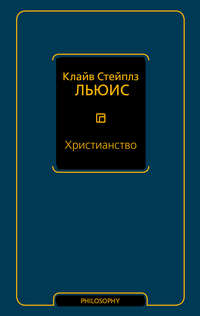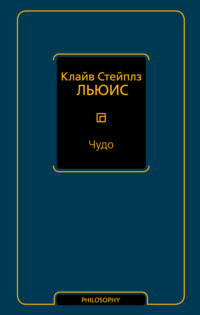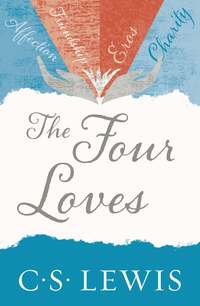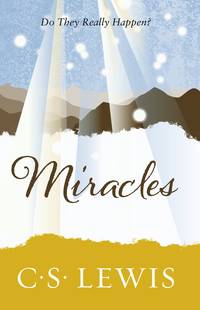
Полная версия
A Year With Aslan: Words of Wisdom and Reflection from the Chronicles of Narnia
He also learned a great deal by using his own eyes and ears. As a little boy he had often wondered why he disliked his aunt, Queen Prunaprismia; he now saw that it was because she disliked him. He also began to see that Narnia was an unhappy country. The taxes were high and the laws were stern and Miraz was a cruel man.
– Prince Caspian
What is the difference between what Caspian’s tutor taught him and what he learned using his own resources? Have you learned your most significant lessons from the instruction of others or from your own observations?
JANUARY 12
A Perfectly Ordinary Wardrobe
LUCY RAN OUT of the empty room into the passage and found the other three.
“It’s all right,” she repeated, “I’ve come back.”
“What on earth are you talking about, Lucy?” asked Susan.
“Why,” said Lucy in amazement, “haven’t you all been wondering where I was?”
“So you’ve been hiding, have you?” said Peter. “Poor old Lu, hiding and nobody noticed! You’ll have to hide longer than that if you want people to start looking for you.”
“But I’ve been away for hours and hours,” said Lucy.
The others all stared at one another.
“Batty!” said Edmund, tapping his head. “Quite batty.”
“What do you mean, Lu?” asked Peter.
“What I said,” answered Lucy. “It was just after breakfast when I went into the wardrobe, and I’ve been away for hours and hours, and had tea, and all sorts of things have happened.”
“Don’t be silly, Lucy,” said Susan. “We’ve only just come out of that room a moment ago, and you were there then.”
“She’s not being silly at all,” said Peter, “she’s just making up a story for fun, aren’t you, Lu? And why shouldn’t she?”
“No, Peter, I’m not,” she said. “It’s – it’s a magic wardrobe. There’s a wood inside it, and it’s snowing, and there’s a Faun and a Witch and it’s called Narnia; come and see.”
The others did not know what to think, but Lucy was so excited that they all went back with her into the room. She rushed ahead of them, flung open the door of the wardrobe and cried, “Now! go in and see for yourselves.”
“Why, you goose,” said Susan, putting her head inside and pulling the fur coats apart, “it’s just an ordinary wardrobe; look! there’s the back of it.”
Then everyone looked in and pulled the coats apart; and they all saw – Lucy herself saw – a perfectly ordinary wardrobe. There was no wood and no snow, only the back of the wardrobe, with hooks on it. Peter went in and rapped his knuckles on it to make sure that it was solid.
“A jolly good hoax, Lu,” he said as he came out again; “you have really taken us in, I must admit. We half-believed you.”
“But it wasn’t a hoax at all,” said Lucy, “really and truly. It was all different a moment ago. Honestly it was. I promise.”
“Come, Lu,” said Peter, “that’s going a bit far. You’ve had your joke. Hadn’t you better drop it now?”
Lucy grew very red in the face and tried to say something, though she hardly knew what she was trying to say, and burst into tears.
For the next few days she was very miserable. She could have made it up with the others quite easily at any moment if she could have brought herself to say that the whole thing was only a story made up for fun. But Lucy was a very truthful girl and she knew that she was really in the right; and she could not bring herself to say this. The others who thought she was telling a lie, and a silly lie too, made her very unhappy. The two elder ones did this without meaning to do it, but Edmund could be spiteful, and on this occasion he was spiteful. He sneered and jeered at Lucy and kept on asking her if she’d found any other new countries in other cupboards all over the house. What made it worse was that these days ought to have been delightful. The weather was fine and they were out of doors from morning to night, bathing, fishing, climbing trees, and lying in the heather. But Lucy could not properly enjoy any of it.
– The Lion, the Witch and the Wardrobe
Why is it so hard for Lucy to say she’s made up her story about the wardrobe? Should she have done so to make things easier? Why do you think not being believed on this one point could ruin her enjoyment of everything she does with her brothers and sister? Have you ever experienced something so strange that people didn’t believe it was true? How did their disbelief make you feel?
JANUARY 13
The Voice
IN THE DARKNESS something was happening at last. A voice had begun to sing. It was very far away and Digory found it hard to decide from what direction it was coming. Sometimes it seemed to come from all directions at once. Sometimes he almost thought it was coming out of the earth beneath them. Its lower notes were deep enough to be the voice of the earth herself. There were no words. There was hardly even a tune. But it was, beyond comparison, the most beautiful noise he had ever heard. It was so beautiful he could hardly bear it.
– The Magician’s Nephew
What does it mean for something to be so beautiful you can hardly bear it? What’s the closest experience you’ve had to that feeling?
JANUARY 14
Reacting to the Voice
THERE WAS SOON LIGHT ENOUGH for them to see one another’s faces. The Cabby and the two children had open mouths and shining eyes; they were drinking in the sound, and they looked as if it reminded them of something. Uncle Andrew’s mouth was open too, but not open with joy. He looked more as if his chin had simply dropped away from the rest of his face. His shoulders were stooped and his knees shook. He was not liking the Voice. If he could have got away from it by creeping into a rat’s hole, he would have done so. But the Witch looked as if, in a way, she understood the music better than any of them. Her mouth was shut, her lips were pressed together, and her fists were clenched. Ever since the song began she had felt that this whole world was filled with a Magic different from hers and stronger. She hated it. She would have smashed that whole world, or all worlds, to pieces, if it would only stop the singing.
– The Magician’s Nephew
Why do you think each person reacted so differently? How do you think hearing such a powerful Voice would affect you?
JANUARY 15
I Just Know
“LOOK! LOOK! LOOK!” cried Lucy.
“Where? What?” said everyone.
“The Lion,” said Lucy. “Aslan himself. Didn’t you see?” Her face had changed completely and her eyes shone.
“Do you really mean—?” began Peter.
“Where did you think you saw him?” asked Susan.
“Don’t talk like a grown-up,” said Lucy, stamping her foot. “I didn’t think I saw him. I saw him. . . . Right up there between those mountain ashes. . . . Just the opposite of the way you want to go. And he wanted us to go where he was – up there.”
“How do you know that was what he wanted?” asked Edmund.
“He – I – I just know,” said Lucy, “by his face.”. . .
“Her Majesty may well have seen a lion,” put in Trumpkin. “There are lions in these woods, I’ve been told. But it needn’t have been a friendly and talking lion any more than the bear was a friendly and talking bear.”
“Oh, don’t be so stupid,” said Lucy. “Do you think I don’t know Aslan when I see him?”
“He’d be a pretty elderly lion by now,” said Trumpkin, “if he’s one you knew when you were here before! And if it could be the same one, what’s to prevent him having gone wild and witless like so many others?”
Lucy turned crimson and I think she would have flown at Trumpkin, if Peter had not laid his hand on her arm. “The DLF doesn’t understand. How could he? You must just take it, Trumpkin, that we do really know about Aslan; a little bit about him, I mean. And you mustn’t talk about him like that again. It isn’t lucky for one thing: and it’s all nonsense for another. The only question is whether Aslan was really there.”
“But I know he was,” said Lucy, her eyes filling with tears.
“Yes, Lu, but we don’t, you see,” said Peter.
– Prince Caspian
Why are the others having such a hard time believing Lucy? Do you often have to see with your own eyes to believe something?
JANUARY 16
The Vote
“THERE’S NOTHING FOR IT BUT A VOTE,” said Edmund.
“All right,” replied Peter. “You’re the eldest, DLF. What do you vote for? Up or down?”
“Down,” said the Dwarf. “I know nothing about Aslan. But I do know that if we turn left and follow the gorge up, it might lead us all day before we found a place where we could cross it. Whereas if we turn right and go down, we’re bound to reach the Great River in about a couple of hours. And if there are any real lions about, we want to go away from them, not towards them.”
“What do you say, Susan?”
“Don’t be angry, Lu,” said Susan, “but I do think we should go down. I’m dead tired. Do let’s get out of this wretched wood into the open as quick as we can. And none of us except you saw anything.”
“Edmund?” said Peter.
“Well, there’s just this,” said Edmund, speaking quickly and turning a little red. “When we first discovered Narnia a year ago – or a thousand years ago, whichever it is – it was Lucy who discovered it first and none of us would believe her. I was the worst of the lot, I know. Yet she was right after all. Wouldn’t it be fair to believe her this time? I vote for going up.”
“Oh, Ed!” said Lucy and seized his hand.
“And now it’s your turn, Peter,” said Susan, “and I do hope—”
“Oh, shut up, shut up and let a chap think,” interrupted Peter. “I’d much rather not have to vote.”
“You’re the High King,” said Trumpkin sternly.
“Down,” said Peter after a long pause. “I know Lucy may be right after all, but I can’t help it. We must do one or the other.”
– Prince Caspian
Why is Edmund the only one to believe Lucy this time? Why do you think Peter makes the decision he does?
JANUARY 17
Lu, You’re a Hero
“I OUGHT TO HAVE MY HEAD SMACKED for bringing us this way at all,” said Peter.
“On the contrary, your Majesty,” said the Dwarf. “For one thing it wasn’t you, it was your royal brother, King Edmund, who first suggested going by Glasswater.”
“I’m afraid the DLF’s right,” said Edmund, who had quite honestly forgotten this ever since things began going wrong.
“And for another,” continued Trumpkin, “if we’d gone my way, we’d have walked straight into that new outpost, most likely; or at least had just the same trouble avoiding it. I think this Glasswater route has turned out for the best.”
“A blessing in disguise,” said Susan.
“Some disguise!” said Edmund.
“I suppose we’ll have to go right up the gorge again now,” said Lucy.
“Lu, you’re a hero,” said Peter. “That’s the nearest you’ve got today to saying I told you so. Let’s get on.”
– Prince Caspian
Would you be able to resist the temptation to say “I told you so”? How is this heroic?
JANUARY 18
Are You Good at Believing Things?
“LOOK HERE, POLE, you and I hate this place about as much as anybody can hate anything, don’t we?”
“I know I do,” said Jill [Pole].
“Then I really think I can trust you.”
“Dam’ good of you,” said Jill.
“Yes, but this is a really terrific secret. Pole, I say, are you good at believing things? I mean things that everyone here would laugh at?”
“I’ve never had the chance,” said Jill, “but I think I would be.”
“Could you believe me if I said I’d been right out of the world – outside this world – last hols?”
“I wouldn’t know what you meant.”
“Well, don’t let’s bother about worlds then. Supposing I told you I’d been in a place where animals can talk and where there are – er – enchantments and dragons – and – well, all the sorts of things you have in fairy-tales.” [Eustace] Scrubb felt terribly awkward as he said this and got red in the face.
“How did you get there?” said Jill. She also felt curiously shy.
“The only way you can – by Magic,” said Eustace almost in a whisper. “I was with two cousins of mine. We were just – whisked away. They’d been there before.”
Now that they were talking in whispers Jill somehow felt it easier to believe. Then suddenly a horrible suspicion came over her and she said (so fiercely that for the moment she looked like a tigress):
“If I find you’ve been pulling my leg I’ll never speak to you again; never, never, never.”
“I’m not,” said Eustace. “I swear I’m not. I swear by – by everything.”. . .
“All right,” said Jill, “I’ll believe you.”
– The Silver Chair
Why do you think Eustace chooses to share his secret? Are you good at believing things? What’s the hardest thing anyone’s ever asked you to believe?
JANUARY 19
Nobody Special
BREE TURNED ROUND AT LAST, his face mournful as only a horse’s can be.
“I shall go back to Calormen,” he said.
“What?” said Aravis. “Back to slavery!”
“Yes,” said Bree. “Slavery is all I’m fit for. How can I ever show my face among the free Horses of Narnia? – I who left a mare and a girl and a boy to be eaten by lions while I galloped all I could to save my own wretched skin!”
“We all ran as hard as we could,” said Hwin.
“Shasta didn’t!” snorted Bree. “At least he ran in the right direction: ran back. And that is what shames me most of all. I, who called myself a war horse and boasted of a hundred fights, to be beaten by a little human boy – a child, a mere foal, who had never held a sword nor had any good nurture or example in his life!”
“I know,” said Aravis. “I felt just the same. Shasta was marvellous. I’m just as bad as you, Bree. I’ve been snubbing him and looking down on him ever since you met us and now he turns out to be the best of us all. . . .”
“It’s all very well for you,” said Bree. “You haven’t disgraced yourself. But I’ve lost everything.”
“My good Horse,” said the Hermit, who had approached them unnoticed because his bare feet made so little noise on that sweet, dewy grass. “My good Horse, you’ve lost nothing but your self-conceit. No, no, cousin. Don’t put back your ears and shake your mane at me. If you are really so humbled as you sounded a minute ago, you must learn to listen to sense. You’re not quite the great Horse you had come to think, from living among poor dumb horses. Of course you were braver and cleverer than them. You could hardly help being that. It doesn’t follow that you’ll be anyone very special in Narnia. But as long as you know you’re nobody very special, you’ll be a very decent sort of Horse, on the whole.”
– The Horse and His Boy
Why is it helpful for Bree to think of himself as nobody special? Do you think of yourself that way? What are the benefits and limits of such a philosophy?
JANUARY 20
Awakening Evil
THE THING IN THE MIDDLE of the room was not exactly a table. It was a square pillar about four feet high and on it there rose a little golden arch from which there hung a little golden bell; and beside this there lay a little golden hammer to hit the bell with.
“I wonder . . . I wonder . . . I wonder,” said Digory.
“There seems to be something written here,” said Polly, stooping down and looking at the side of the pillar. . . .
What it said was something like this – at least this is the sense of it though the poetry, when you read it there, was better:
Make your choice, adventurous Stranger;
Strike the bell and bide the danger,
Or wonder, till it drives you mad,
What would have followed if you had.
“No fear!” said Polly. “We don’t want any danger.”
“Oh, but don’t you see it’s no good?” said Digory. “We can’t get out of it now. We shall always be wondering what else would have happened if we had struck the bell. I’m not going home to be driven mad by always thinking of that. No fear!”
“Don’t be so silly,” said Polly. “As if anyone would! What does it matter what would have happened?”
“I expect anyone who’s come as far as this is bound to go on wondering till it sends him dotty. That’s the Magic of it, you see. I can feel it beginning to work on me already.”
“Well, I don’t,” said Polly crossly. “And I don’t believe you do either. You’re just putting it on.”
“That’s all you know,” said Digory. “It’s because you’re a girl. Girls never want to know anything but gossip and rot about people getting engaged.”. . .
[Polly said,] “I’m off. I’ve had enough of this place. And I’ve had enough of you too – you beastly, stuck-up, obstinate pig!”
“None of that!” said Digory in a voice even nastier than he meant it to be; for he saw Polly’s hand moving to her pocket to get hold of her yellow ring. I can’t excuse what he did next except by saying that he was very sorry afterward (and so were a good many other people). Before Polly’s hand reached her pocket, he grabbed her wrist, leaning across with his back against her chest. Then, keeping her other arm out of the way with his other elbow, he leaned forward, picked up the hammer, and struck the golden bell a light, smart tap.
– The Magician’s Nephew
Whom do you most sympathize with in this situation? Why?
JANUARY 21
How Do You Know It’s Not True?
THE TWO OLDER ONES were really beginning to think that Lucy was out of her mind. They stood in the passage talking about it in whispers long after she had gone to bed.
The result was the next morning they decided that they really would go and tell the whole thing to the Professor. “He’ll write to Father if he thinks there is really something wrong with Lu,” said Peter; “it’s getting beyond us.” So they went and knocked at the study door, and the Professor said “Come in,” and got up and found chairs for them and said he was quite at their disposal. Then he sat listening to them with the tips of his fingers pressed together and never interrupting, till they had finished the whole story. After that he said nothing for quite a long time. Then he cleared his throat and said the last thing either of them expected:
“How do you know,” he asked, “that your sister’s story is not true?”
“Oh, but—” began Susan, and then stopped. Anyone could see from the old man’s face that he was perfectly serious. Then Susan pulled herself together and said, “But Edmund said they had only been pretending.”
“That is a point,” said the Professor, “which certainly deserves consideration; very careful consideration. For instance – if you will excuse me for asking the question – does your experience lead you to regard your brother or your sister as the more reliable? I mean, which is the more truthful?”
“That’s just the funny thing about it, sir,” said Peter. “Up till now, I’d have said Lucy every time.”
“And what do you think, my dear?” said the Professor, turning to Susan.
“Well,” said Susan, “in general, I’d say the same as Peter, but this couldn’t be true – all this about the wood and the Faun.”
“That is more than I know,” said the Professor, “and a charge of lying against someone whom you have always found truthful is a very serious thing; a very serious thing indeed.”
“We were afraid it mightn’t even be lying,” said Susan; “we thought there might be something wrong with Lucy.”
“Madness, you mean?” said the Professor quite coolly. “Oh, you can make your minds easy about that. One has only to look at her and talk to her to see that she is not mad.”
“But then,” said Susan, and stopped. She had never dreamed that a grown-up would talk like the Professor and didn’t know what to think.
“Logic!” said the Professor half to himself. “Why don’t they teach logic at these schools? There are only three possibilities. Either your sister is telling lies, or she is mad, or she is telling the truth. You know she doesn’t tell lies and it is obvious that she is not mad. For the moment then and unless any further evidence turns up, we must assume that she is telling the truth.”
– The Lion, the Witch and the Wardrobe
Why are Susan and Peter so surprised at the Professor’s opinion? Why do you think their first instinct is not to believe Lucy? When in your life have you had trouble reconciling belief with logic?
JANUARY 22
Minding Our Own Business
“BUT HOW COULD IT BE TRUE, SIR?” said Peter.
“Why do you say that?” asked the Professor.
“Well, for one thing,” said Peter, “if it was real why doesn’t everyone find this country every time they go to the wardrobe? I mean, there was nothing there when we looked; even Lucy didn’t pretend there was.”
“What has that to do with it?” said the Professor.
“Well, sir, if things are real, they’re there all the time.”
“Are they?” said the Professor; and Peter did not know quite what to say.
“But there was no time,” said Susan. “Lucy had had no time to have gone anywhere, even if there was such a place. She came running after us the very moment we were out of the room. It was less than a minute, and she pretended to have been away for hours.”
“That is the very thing that makes her story so likely to be true,” said the Professor. “If there really is a door in this house that leads to some other world (and I should warn you that this is a very strange house, and even I know very little about it) – if, I say, she had got into another world, I should not be at all surprised to find that the other world had a separate time of its own; so that however long you stayed there it would never take up any of our time. On the other hand, I don’t think many girls of her age would invent that idea for themselves. If she had been pretending, she would have hidden for a reasonable time before coming out and telling her story.”
“But do you really mean, sir,” said Peter, “that there could be other worlds – all over the place, just round the corner – like that?”
“Nothing is more probable,” said the Professor, taking off his spectacles and beginning to polish them, while he muttered to himself, “I wonder what they do teach them at these schools.”
“But what are we to do?” said Susan. She felt that the conversation was beginning to get off the point.
“My dear young lady,” said the Professor, suddenly looking up with a very sharp expression at both of them, “there is one plan which no one has yet suggested and which is well worth trying.”
“What’s that?” said Susan.
“We might all try minding our own business,” said he. And that was the end of that conversation.
– The Lion, the Witch and the Wardrobe
Why does the Professor advise them to mind their own business? When does our concern for the well-being of others become problematic?
JANUARY 23
Pleased with Nothing
THE NAME OF THE SHIP was Dawn Treader. She was only a little bit of a thing compared with one of our ships, or even with the cogs, dromonds, carracks and galleons which Narnia had owned when Lucy and Edmund had reigned there under Peter as the High King, for nearly all navigation had died out in the reigns of Caspian’s ancestors. When his uncle, Miraz the usurper, had sent the seven lords to sea, they had had to buy a Galmian ship and man it with hired Galmian sailors. But now Caspian had begun to teach the Narnians to be sea-faring folk once more, and the Dawn Treader was the finest ship he had built yet. She was so small that, forward of the mast, there was hardly any deck room between the central hatch and the ship’s boat on one side and the hen-coop (Lucy fed the hens) on the other. But she was a beauty of her kind, a “lady” as sailors say, her lines perfect, her colours pure, and every spar and rope and pin lovingly made. Eustace of course would be pleased with nothing, and kept on boasting about liners and motorboats and aeroplanes and submarines (“As if he knew anything about them,” muttered Edmund), but the other two were delighted with the Dawn Treader, and when they returned aft to the cabin and supper, and saw the whole western sky lit up with an immense crimson sunset, and felt the quiver of the ship, and tasted the salt on their lips, and thought of unknown lands on the Eastern rim of the world, Lucy felt that she was almost too happy to speak.








